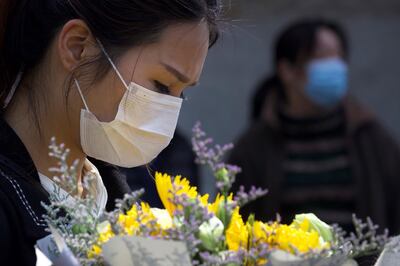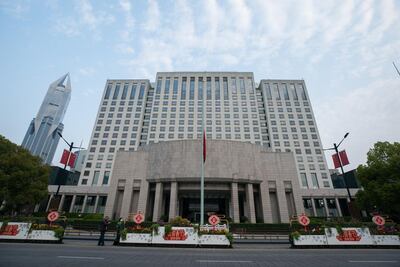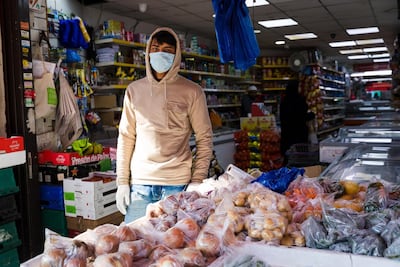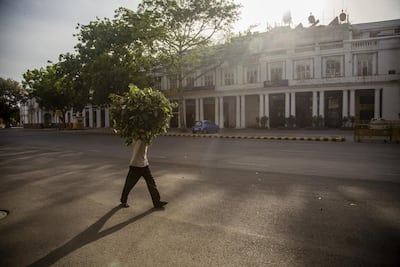As they are locked down, executives everywhere are grappling with one question: what will their world look like when this is over?
There is no certain answer. We don't know for instance if the coronavirus will return in waves, if we will be subjected to rolling periods of self-isolation and social distancing.
Until a vaccine is produced that is available to all, across the globe, there is little likelihood of any semblance of a full return to normal business.
It has to be worldwide because business is now firmly wedded to globalisation. One possible outcome that is already being raised is the prospect of the rebirth of nationalism leading to protectionism, that nations will retreat into themselves.
Governments may be tempted to encourage it, to close their borders, to raise morale, and as a way of driving employment and securing higher taxes to pay for their responses to the pandemic.
It is not going to happen. We have long since moved away from domestic economies being able to provide all their needs. Goods and people will move freely again, foreign labour and skills, investment and custom will be sought – same as before.
What will occur, though, is an increase in risk aversion. Make no mistake this has been a profound shock. While the numbers of deaths remain relatively low, the impact of the outbreak has been shattering.
For the first time, we have been made aware of our vulnerability. Virtually everything everywhere has just stopped.
There has not been an event like it since the outbreak of the Second World War. On the morning of 3 September, 1939 Germany was invading Poland. Later that day Britain and France declared war, and what was an East European conflict took on an entirely different dimension.
That is what has occurred with Covid-19. Its ability to change the way we behave, not just in one country but in pretty much all of them, and at once, has been a rude awakening.
READ Our coronavirus superheroes don't need capes – they need our support
Those who lived through the Second World War or heard the tales from their parents were made to understand that lives could be turned upside down. That generation learned to put money aside “for a rainy day”. It never arrived, until now.
Coronavirus is our World War Two, our rainy day. What this means for those enterprises that survive the stoppage (the ones without the business equivalent of “underlying health issues”) is that they will re-evaluate.
Capital projects are likely to be put on hold, but more than that they will be reassessed in the light of what we now know is possible. Likewise, costs. Do we require this, can we do without, can we at least pare it back?
Staff resources and working patterns are bound to be re-examined.
I have lost count of the number of folk who have told me how capable they are of doing their jobs while remaining at home, of holding meetings via Teams or Zoom, and how it is making them think if they really do need all that prime office rental space or if they could function just as efficiently with much smaller and cheaper premises.
Whether they do remain true to their word, once the restrictions are lifted and we start buzzing around again, remains to be seen. But they have been shown what is achievable.
More than that, I am hearing people say they are actually working super effectively – that they have extra time, they are not commuting, and they have still got connectivity.
It is not for everybody, and for those whose accommodation is a squeeze, it is not an option. Nor for young workers who need direction, and enjoy the communal spark of being together in the office.
READ: How you can work from home and win
Business travel is likely to suffer. My personal record is a trip from London to the South of France for a meeting with a chief executive officer lasting all of 15 minutes.
Post-virus, with the dramatic improvements in meetings software it is hard to see such an expense ever being justified again.
With the virus has come a new collectiveness and seriousness. It may not last, but there is a togetherness not experienced in most people’s lifetimes. The purpose movement that was in train BC, Before Corona, is likely to accelerate.
We are seeing that those businesses that step up during the crisis and are helping the common good raise their standing.

That will continue – not least because one facet of what has occurred is the push against inequality. Philanthropy – but not gesture philanthropy – will be expected. Similarly, frippery will be out, material consumption will be become, well, unfashionable.
We will have shifted, too, from despising big government to appreciating what governments are capable of – once they get their act together. Business will be less contemptuous of interference, preferring to co-operate with government rather than demean it.
Moans about “health and safety” will never again have the same resonance. But whether businesses are willing to pay the additional taxes that will surely come to pay for the fightback is open to question.
As to those sectors that will enjoy a surge in investment and demand, healthcare, pharma and bio-tech are obvious winners.
The virus has also caused us to pause in another way. In parts of China, they’re seeing blue sky for the first time; in India, too, people are marvelling at clean air and sharpness of light.
Such sensations are not confined to those countries, they are worldwide. Whether that makes a difference once the factories fire up and the aircraft engines start whirring it is impossible to determine.
But it should, and it might. Businesses ought to expect renewed pressure for anti-pollution measures.

By acting so universally and instantly, coronavirus has caused pain and suffering on an epic scale but it has also delivered dramatic, all-encompassing change. The business world will never be the same again.
Chris Blackhurst is the former editor of the Independent, based in London




